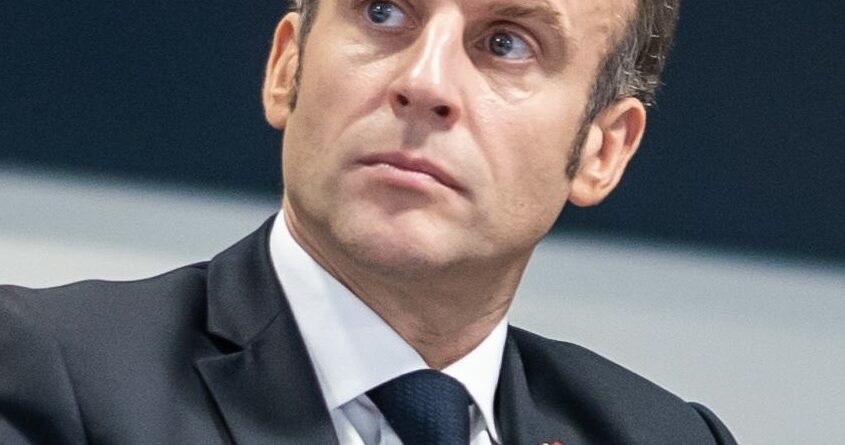Macron puts his government at risk with decision to raise the retirement age in France
French President Emmanuel Macron imposed a highly unpopular bill raising the retirement age from 62 to 64 on Thursday by shunning parliament and invoking a special constitutional power.
Lawmakers were shouting, their voices shaking with emotion as Macron made the risky move, which is expected to trigger quick motions of no-confidence in his government. Riot police vans zoomed by outside the National Assembly, their sirens wailing.
The proposed pension changes have prompted major strikes and protests across the country since January. Macron, who made it the flagship of his second term, argued the reform is needed to keep the pension system from diving into deficit as France’s population ages and life expectancy lengthens.
Macron decided to invoke the special power during a Cabinet meeting at the Elysee presidential palace, just a few minutes before the scheduled vote in France’s lower house of parliament, because he had no guarantee of a majority.
Prime Minister Elisabeth Borne then tried to formally announce the decision at the National Assembly, where leftist members broke into the French national anthem to delay her speech. The speaker had to briefly suspend the session to restore order.
“Today, there’s uncertainty” about whether a majority would have voted for the bill, Borne acknowledged, but she said “We cannot gamble on the future of our pensions. That reform is necessary.”
Borne prompted boos from the opposition when she said her government is accountable to the parliament, noting that the pension plan had been subject to 175 hours of parliamentary debate, and that lawmakers can try to revoke the changes through no-confidence motions.
“There will actually be a proper vote and therefore the parliamentary democracy will have the last say,” Borne said.
Opposition lawmakers demanded the government step down. One Communist lawmaker called the presidential power a political “guillotine.” Others called it a “denial of democracy” that signals Macron’s lack of legitimacy. One union leader called it “institutional violence” and called for more strikes and protests.
Marine Le Pen said her far-right National Rally party would file a no-confidence motion, and Communist lawmaker Fabien Roussel said such a motion is “ready” on the left.
“The mobilization will continue,” Roussel said. “This reform must be suspended.”
The head of The Republicans party, Eric Ciotti, said his group won’t “add chaos to chaos” by supporting a no-confidence motion, but some of his fellow conservatives at odds with the party’s leadership could vote individually.
A no-confidence motion needs approval by more than half the Assembly. In such case — which would be a first since 1962 — the government would have to resign. Macron could reappoint Borne if he chooses, and a new Cabinet would be named.
If no-confidence motions don’t succeed, the pension bill would be considered adopted.
Earlier Thursday, the Senate adopted the bill in a 193-114 vote, a tally that was largely expected since the conservative majority of the upper house favored the changes.
Red more @npr











